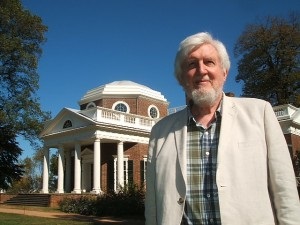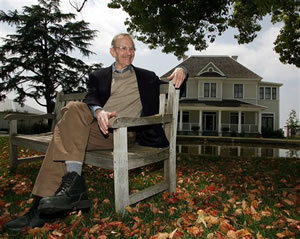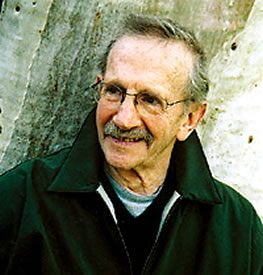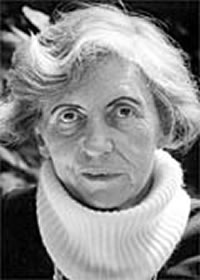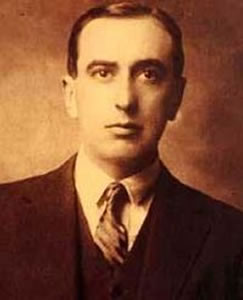De Duitse schrijfster en journaliste Renate Schostack werd geboren op 10 januari 1938 in Pforzheim. Zij studeerde germanistiek en geschiedenis in München, Bazel, Parijs en Berlijn. In 1964 promoveerde zij in Freiburg im Breisgau tot doctor in de filosofie. Aansluitend werkte zij als lector aan de universiteiten van Toulouse en Bristol. Sinds 1969 is zij verbonden aan de “Frankfurter Allgemeinen Zeitung”, als cultuur-correspondente, eerst in Londen, sinds 1989 in München. Naast haar journalistieke en kritische werk schrijft zij romans en verhalen.
Uit: Die eitle Schöne (Über Geist und Kultur in München)
„Das Allerweltswesen begann, die Atmosphäre der Stadt zu färben. Gruppierungen rückten jetzt mit ihren Anliegen in den Vordergrund der Szene, deren Namen die Marktfrauen am Viktualien markt noch vor wenigen Jahren nie gehört hatten: Schwule und Lesben; Blader und Skater. Selbst die stadtberühmten Nackerten hatten jetzt eine „message“. Die Damen und Herren, die bei zehn Grad minus kurz vor Weihnachten 1993 durch die Innenstadt zogen, demonstrierten für den Tierschutz.
Wehe, wenn sich ein Kommentator diesen Herrschaften nicht mit angemessenem Ernst genähert hätte. Als die Leiterin des Münchner Frauenamtes, die den Titel „Gleichstellungsbeauftragte“ trug,
in einem aufgeschnittenen Apfel, der eine städtische Werbebroschüre zierte, ein weibliches Geschlechtsorgan erkannte und empört „Sexismus!“ rief, sollte man über diesen Unsinn nicht einmal lachen dürfen. Diese Verstiegenheit, die aus der amerikanischen Debatte über „political correctness“ auch nach München schwappte, bedrohte die alte freche Unschuld.
War sie gar ans Ende gelangt? Als 1996 der Berufsplayboy „James“ Graser starb, waren manche dieser Ansicht. Er pfl egte auf dem Höhepunkt seiner Laufbahn, wenn er ein Lokal betrat, den frohgemuten Ruf auszustoßen: „Sind Hasen da?“ In den neunziger Jahren hätten ihn die Frauenbeauftragte und ihr Gefolge vor den Kadi gebracht.
Stattdessen nun also allerlei Minderheiten, denen man gern ihre Sonderlichkeiten zugesteht, wären sie bloß nicht so verbissen, und Ausgefl ippte, die mit Abgeschmacktheiten aller Art nur eines anstreben: aufzufallen um jeden Preis. Da gab es etwa die Käfer-Nächte im P1 mit Obdachlosen als Statisten („Penner-Party“), mit einem Jesus-Darsteller am Kreuz, mit halbnackten zotteligen
Höhlenbewohnern („Steinzeit-Party“), zu der per Post mit echten Tierknochen eingeladen worden war. Ein Magazin holte sich aus der EX-DDR ein nettes Mädchen, verwandelte es durch allerlei „Styling-Berater“ in eine Modepuppe, jagte es, von Fotografen und anderem Gefolge umlagert, durch Discos und Nachtclubs, um zu beweisen, dass in München mit entsprechenden Mitteln jeder Nobody zur Party-Größe gemacht werden könne. Die SZ gar befasste sich mit der ersten Münchner Bischöfin und ließ für sie eine Modekollektion entwerfen. Sie gipfelte in einer Gewandung, die das Undenkbare dachte: eine evangelische Päpstin.“
Renate Schostack (Pforzheim, 10 januari 1938)
De Amerikaanse dichter Philip Levine werd geboren op 10 januari 1928 in Detroit, Michigan. Zie ook alle tags voor Philip Levine op dit blog.
Another Song
Words go on travelling from voice
to voice while the phones are still
and the wires hum in the cold. Now
and then dark winter birds settle
slowly on the crossbars, where huddled
they caw out their loneliness. Except
for them the March world is white
and barely alive. The train to Providence
moans somewhere near the end
of town, and the churning of metal
on metal from so many miles away
is only a high thin note trilling
the frozen air. Years ago I lived
not far from here, grown to fat
and austerity, a man who came
closely shaven to breakfast and ate
in silence and left punctually, alone,
for work. So it was I saw it all
and turned away to where snow
fell into snow and the wind spoke
in the incomprehensible syllable
of wind, and I could be anyone:
a man whose life lay open before him,
a book with no ending, a widow
bearing white carnations at dusk
to a hillside graveyard turned
to blank rubble, a cinder floating
down to earth and blinking slowly out,
too small to mean a thing, too tired
to even sigh. If life comes back,
as we are told it does, each time one
step closer to the edge of truth,
then I am ready for the dawn
that calls a sullen boy from sleep
rubbing his eyes on a white window
and knowing none of it can last the day.
Holy Day
Los Angeles hums
a little tune —
trucks down
for Monday Market
packed with small faces
blinking in the dark.
My mother dreams
by the open window.
On the drainboard
the gray roast humps
untouched, the oven
bangs its iron jaws,
but it’s over.
Before her on the table
set for so many
her glass of fire
goes out.
The childish photographs,
the letters and cards
scatter at last.
The dead burn alone
toward dawn.
Philip Levine (Detroit, 10 januari 1928)
De Duitse schrijfster Ingeborg Drewitz werd geboren op 10 januari 1923 in Berlijn. Na eerst in een bedrijf gewerkt te hebben studeerde zij tot 1945 filosofie, germanistiek en geschiedenis in Berlijn, waar zij later ook doceerde aan de Freie Universität. Zij schreef toneel, tijd- en maatschappijkritische romans, verhalen, non-fictie boeken, autobiografisch werk en hoorspelen. In veel van haar werk hield zij zich bezig met het nationaal-socialisme.
Uit: Gestern war Heute – Hundert Jahre Gegenwart
“Es ist alles so schnell gegangen, Jörgs Anstellung bei Schering, im Altbau, sehr beengt, aber Chemie – da wird was draus! Und seine Frage. Und ihre zögernde Antwort: Warum eigentlich nicht? Warum eigentlich nicht. Sie mögen sich. Sie erzählt ihm von dem Sommertag in Grünau. Ganz nüchtern, ganz offen wollen sie beginnen. Seine Mutter ist gestorben, ein Männerhaushalt, der Vater und der Sohn brauchen eine Frau.
Angst, Angst vor dieser Idylle: Mann und Frau, vielleicht auch ein Kind oder zwei. Angst vor der Immer-Wiederkehr: Mann und Frau und Mann und Frau. Angst vor dem Leben, das Mutter gelebt hat und Großmutter und Urgroßmutter: Draußen die Welt und hinter den vier Wänden – nein keine Geborgenheit.
Bisher hat sie doch immer gehofft, mit jedem Jahr deutlicher zu werden, endlich wieder so unbefangen Ich zu sagen, wie als Kind. ICH.”
Ingeborg Drewitz (10 januari 1923 – 26 november 1986)
De Chileense dichter Vicente García-Huidobro Fernández werd op 10 januari 1893 geboren in Santiago. Zie ook alle tags voor Vincente Huidobro op dit blog.
Ekloge
Sterbende Sonne
Eine Autopanne
Und ein Duft von Frühling
Bleibt im Vorbeigehen in der Luft
Irgendwo
ein Lied
WO BIST DU
An einem Nachmittag wie diesem
Suchte ich vergeblich nach dir
Im Nebel aller Straßen
Traf ich mich selbst
Und im Rauch meiner Zigarre
Sah ich einen verlorenen Vogel
Niemand antwortete
Die letzten Schäfer ertränkten sich
Und die verirrten Schafe
Fraßen Blumen und gaben keinen Honig
Der Winde der vorbeistrich
Häuft ihre Wolle auf
Zwischen den Wolken
Benetzt mit meinen Tränen
Warum das bereits Beweinte
nochmals beweinen
Und da die Schafe Blumen fressen
Ein Zeichen daß du bereits vorbeigegangen bist.
Vertaald door Johannes Beilharz
Vicente Huidobro (10 januari 1893 – 2 januari 1948)
De Amerikaanse dichter en schrijver John Robinson Jeffers werd geboren op 10 januari 1887 in Allegheny, nu Pittsburgh, Pennsylvania. Zie ook ook alle tags voor Robinson Jeffers op dit blog.
Promise Of Peace
The heads of strong old age are beautiful
Beyond all grace of youth. They have strange quiet,
Integrity, health, soundness, to the full
They’ve dealt with life and been tempered by it.
A young man must not sleep; his years are war,
Civil and foreign but the former’s worse;
But the old can breathe in safety now that they are
Forgetting what youth meant, the being perverse,
Running the fool’s gauntlet and being cut
By the whips of the five senses. As for me,
If I should wish to live long it were but
To trade those fevers for tranquillity,
Thinking though that’s entire and sweet in the grave
How shall the dead taste the deep treasure they have?
Sign-Post
Civilized, crying: how to be human again; this will tell you how.
Turn outward, love things, not men, turn right away from humanity,
Let that doll lie. Consider if you like how the lilies grow,
Lean on the silent rock until you feel its divinity
Make your veins cold; look at the silent stars, let your eyes
Climb the great ladder out of the pit of yourself and man.
Things are so beautiful, your love will follow your eyes;
Things are the God; you will love God and not in vain,
For what we love, we grow to it, we share its nature. At length
You will look back along the star’s rays and see that even
The poor doll humanity has a place under heaven.
Its qualities repair their mosaic around you, the chips of strength
And sickness; but now you are free, even to be human,
But born of the rock and the air, not of a woman.
Robinson Jeffers (10 januari 1887 – 20 januari 1962)
De Russische schrijver Alexei Tolstoy werd geboren op 10 januari 1883 in Sosnovka. Zie ook mijn blog van 10 januari 2009.
Uit: Ordeal
„Dasha pushed her way up to the platform. A tall young’fellow, turning his head, opened his mouth in a broad smile, his teeth showing white against his begrimed face; nodding towards a bench, he stretched out his hand, and Dasha climbed up beside him to the lathe beneath the window. The faces in the vast crowd – several thousand strong – were morose, the brows lined, the lips compressed. She saw such faces every day in the streets and trams, weary Russian faces, with forbidding eyes. Dasha remembered walking about the islands in Petersburg one Sunday, before the war, when her escorts – two barristers – had turned the conversation upon just faces. “Take the Paris crowd, Darya Dmitrievna – gay, good-humoured, bubbling with fun… And here you see nothing but scowling countenances. Look at these two workers coming towards us! Shall I go up to them, and try and joke with them? They wouldn’t understand, they’d be offended. Russians are so ridiculously slow on the uptake, so heavy in hand…” And now these humourless folk stood there, agitated, sombre, tense and determined. The same faces, but dark with hunger now, the same eyes, but the expression fiery, impatient.D
Dasha forgot what she was there for. The impressions of the life into which she had plunged from her lonely window in Krasniye Zori Street, carried her away like a storm bird, and she abandoned herself to them with pristine innocence. She was not really stupid but, like many other people, she had been left to herself, with only her own tiny store of experience to guide her. But she thirsted for truth-she thirsted for it as an individual, as a woman, as a member of the human race.
A new speaker had ascended the platform, a short man in a grey jacket, his waistcoat showing horizontal wrinkles. His bald, bumpy head was bent over the notes on the table before him. “Comrades!” he began, and Dasha noticed that he spoke with a slight burr, and that he looked worried, screwing up his eyes as if the light was in them. His hands rested on the table, on a sheaf of notes. When he said that his subject today would be the acute crisis which was bearing down upon the whole of Europe and on Russia heaviest of all, and that his subject was famine, three thousand people held their breath beneath the smoke-blackened roof.“

Alexei Tolstoy (10 januari 1883 – 23 februari 1945)
De Nederlandse dichter en schrijver Jan Eekhout werd geboren op 10 januari 1900 in Sluis. Zie ook mijn blog van 10 januari 2007 en ook mijn blog van 10 januari 2009.
De Waanzinnige
‘k Heb hard om God gebeden, en Hij kwam,
drong plots zich driftig in mijn felle zinnen
als wilde Hij in mij opnieuw beginnen
Zichzelf, nu het al losbrak uit den ban
van een zoo groot, roofzuchtig haast, beminnen
Sindsdien laait onophoudelijk in mij van
Zijn vreemd Bestaan de folterende vlam,
doch kan Hij mij, noch ik Hem overwinnen.
Een was die zag hoe Hij in mij ging wijken,
en daarom bracht men God en mij tezamen
in dit grafnauw en beendernaakt vertrek.
Hier zullen vechten wij tot wij bezwijken,
gillend verward dooreen elkanders namen,
scheldend elkander schaamteloos voor gek.
Jan H. Eekhout (10 januari 1900 – 6 maart 1978)
De Ierse dichter en criticus Aubrey Thomas de Vere werd geboren in Adare, County Limerick, op 10 januari 1814. Aubrey Thomas de Vere studeerde aan het Trinity College in Dublin. Op 28-jarige leeftijd publiceerde hij The Waldenses, een jaar later gevolgd door The Search after Proserpine. Vanaf dat moment hield hij zich tot zijn dood in 1902 bezig met poëzie en literaire en politieke essays. Als jonge dichter werd hij sterk beïnvloed door de Engelse romantische dichters William Wordsworth en Samuel Taylor Coleridge. Hij bracht lange tijd door in Engeland, waar hij bevriend raakte met Alfred Tennyson en Robert Browning. Zijn hart lag echter in Ierland. In 1851 werd hij rooms-katholiek.
The Children Band
ALL holy influences dwell within
The breast of Childhood: instincts fresh from God
Inspire it, ere the heart beneath the rod
Of grief hath bled, or caught the plague of sin.
How mighty was that fervour which could win
Its way to infant souls!–and was the sod
Of Palestine by infant Croises trod?
Like Joseph went they forth, or Benjamin,
In all their touching beauty to redeem?
And did their soft lips kiss the Sepulchre?
Alas! the lovely pageant as a dream
Faded! They sank not through ignoble fear;
They felt not Moslem steel. By mountain, stream,
In sands, in fens, they died–no mother near!
Aubrey Thomas de Vere (10 januari 1814 – 20 januari 1902)
Portret door Julia Margaret Cameron
Zie voor onderstaande schrijver ook mijn blog van 10 januari 2009.
De Duitstalige, uit Namibië stammende, schrijver Giselher Werner Hoffmann werd geboren op 10 januari 1958 in Windhoek.
